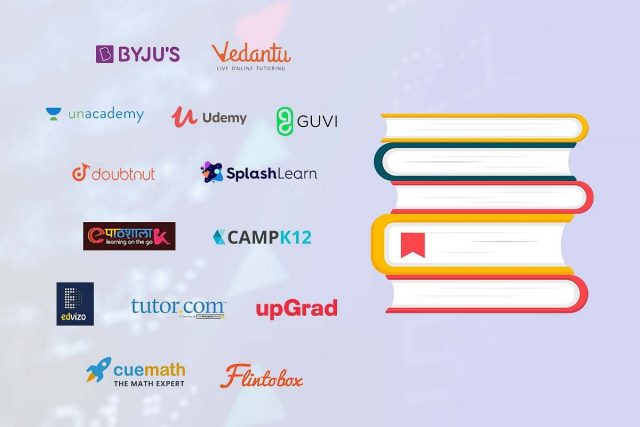Covid-19 encouraged people to search for virtual alternatives to real-life experiences, routines, tasks, and services. One of the industries that have benefited from the push toward digital living and learning over the past two years has been edtech, or education technology, which refers to the system of online education services.
The Indian edtech market, which was estimated to be worth $750 million in US dollars in 2020, is expected to grow to $4 billion in US dollars by 2025, according to a report published in India Brand Equity Foundation in November 2021. There are currently 4,530 edtech start-ups operating in India, according to different research from the Center for Budget and Governance Accountability (CBGA), of which 435 were founded in the last two years alone.
Major edtech platforms have asserted that a sizable portion of its teachers come from non-academic backgrounds and have no prior experience teaching professionally.
But what has exactly led to bankers, engineers, and other professionals switching to teaching in edtech platforms? Let’s hear it from the teachers themselves.,
No Formal Degree Required
While a position in the nation’s formal education system would call for teachers or professors to hold a B.Ed. or a Ph.D. (for colleges), edtech platforms do not view the lack of these credentials as a barrier when hiring faculty.
Instead, the qualifications required of a faculty member depending on the type of skill or learning made available by the specific platform. Major edtech platforms’ representatives said that many of their instructors come from non-academic backgrounds and have never worked as teachers in the past.
Thus, many people with prior corporate or other professional backgrounds have been urged to switch to teaching on these platforms.
According to a teacher on one of the platforms, the “difference” in the nature of teaching involved in traditional and online education is the cause of the disparity in selection criteria for teachers between traditional educational institutions and edtech platforms.
“Teachers at schools and colleges prepare students for life, enabling them to take on any role in their future. Whereas, teachers at edtech platforms are imparting a very specific kind of skill or knowledge.”
Lesser Anxiety Issues
While the comparatively lenient hiring standards may make it possible for people with a passion for teaching but no prior work experience to transition, first-day nerves are typical and are not alleviated by years spent working at another employment.
Lavish Madan spent two years working for a corporation in India after receiving his master’s in economics from UC Berkeley. However, he felt unfulfilled in his position, so in 2020 he joined an edtech platform that aids students in their preparation for the GMAT and CAT exams.
Madan, an introvert, found it difficult to adjust to teaching. He recalled his first day of classes at ThePrint, saying, “I was really nervous. Although I was supposed to switch on my computer camera and introduce myself, I did not do it and told my students that there was a problem with my camera. I realize this is a luxury I could not have got had it not been an online teaching platform.”
More Flexible, Better Pay
While the edtech boom has opened up entirely new employment opportunities for people with experiences other than teaching, it has also increased the number of work possibilities available to instructors.
After working for 15 years as a private school teacher across the nation, Delhi-native Smriti Desai, 39, joined an edtech platform in 2020.
Also Read: Father Of Xavier’s Kolkata Student Forces Prof To Resign Over Pictures In “Undergarments”
Desai, who works for a website that supports K–12 instruction (kindergarten through class 12), stated, “Even regular school teachers had to shift to teaching online, make PPTs and change the way they interact with students, so I thought why not get into a role that gives me flexibility in terms of my work hours and also pays me more. I joined the current edtech company I am working with in September 2020.”
The platform’s versatility is one of the primary factors that led Desai to make the switch. She occasionally tapes her lectures in advance when she can’t attend a live session because her job is to help students prepare for admission examinations.
She stated that the financial benefits of the position were an extra bonus.
The senior administrative head of an edtech platform quoted above said, “Salaries of teachers depend on a few things, the company that they are working for, the role they are employed in (full-time or part-time) and their qualification,”
According to a top faculty member at another platform, teachers of specialized courses like robotics and AI might make up to Rs 4 lakh per day.
“But that’s at a very senior level…such examples are few but they do exist,” said this teacher. “When people leave their corporate jobs and join these platforms, there is definitely a financial gain for which they are coming.”
Overcoming The Barriers

Lavish Madan’s ongoing struggle, more than a year later, is determining “whether students have understood a concept or not”.
“They switch off their cameras, so I can’t see them and the extroverts talk a lot, but the introverts don’t talk. That is a part of teaching I am still trying to figure out,” said he.
Even the most assured and seasoned members of the faculty frequently admit that it can be difficult to determine the level of pupil knowledge.
Vardhan, who was quoted above, did not find interaction difficult. The former banker, 35, compared the presentation to one in a boardroom. “On my first day, I told them about myself, why I made a career switch and how they can also become successful in the financial field like me.”
But as he started out in the classroom, he frequently had his doubts about whether or not his pupils could follow him.
“Breaking down complex concepts into simpler ideas for the students was a challenge. What is simple for me might not be simple for the learners and that is what I had to understand,” said he.
Divyajyoti Mishra, a senior innovation engineering teacher at STEMROBO and a B.Tech in electronics and communication engineering, echoes his sentiments. He stated it was difficult for him, in the beginning, to simplify complex topics for young kids when he first began teaching in 2016.
Mishra, who currently has 10 people working for him, said, “I teach concepts like coding, robotics, and artificial intelligence to young kids. The module that we develop has to cater to the level of understanding of young children… that was a challenge initially, but now things are more sorted,”
Addressing these issues N. Raja, an edtech teacher and a former chartered accountant said, “I ensure that I explain everything to the point and that I teach concepts followed by examples and case studies. My focus was on having crystal clear clarity of the concept. If we can ensure that, then we have no geographical barriers.”
The Future Of Digital Education In India
In India, the market for online education is anticipated to increase by US$ 2.28 billion between 2021 and 2025, with a CAGR of over 20%. In India, the market expanded by 19.02 percent in 2021. In addition to emphasizing innovative educational methodologies like E-learning and M-learning, numerous government measures are being adopted to stimulate the expansion of the remote education business.
However, observing how the perpetual pleas of Calcutta University students against offline examinations got rejected recently, it is important to ask: can digital education ever replace traditional learning? Tell us in the comments down below.
Disclaimer: This article has been fact-checked
Sources: The Print, Economic Times, edexLIVE +more
Image Source: Google Images
Find the blogger @ParomaDey
This post is tagged under Education, online education, technology, digital education in India, PM eVidya, Dharmendra Pradhan, edtech platforms, BYJU’S, Byju Raveendran, Divya Gokulnath, Whitehat education, Karan Bajaj, Unacademy, Gaurav Munjal, Roman Saini, Hemesh Singh, Udemy, Oktay Çağlar, Gagan Biyani, Eren Bali, Calcutta University
Feature Image designed by Saudamini Seth
We do not hold any right, copyright over any of the images used, these have been taken from Google. In case of credits or removal, the owner may kindly mail us.
Read More:
WHAT ARE IIT BOMBAY STUDENTS PROTESTING AGAINST WITH A HUNGER STRIKE?
































